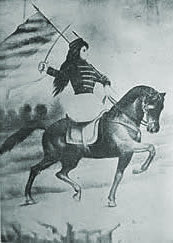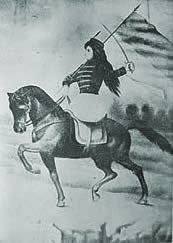
|
Women and Independence in Latin America An exploration of women's involvement in the Latin American Wars of Independence |

|

|
Women and Independence in Latin America An exploration of women's involvement in the Latin American Wars of Independence |

|
Click on the image below to see the full-size image
 Medals |
Other names: Aristio, Aristófanes, Félix Agrícola, Unánue
Gender:Male
Ethnic origen: White
Events:
| 1755 | - | Arica | - | Not applicable | - | He was born in Arica on 13 August 1755. |
| 1791 | - | Lima | - | Unknown | - | He contributed to El Mercurio Peruano. |
| 1814-1825 | - | Peru | - | Unknown | - | He was a member of a liberal group from 1814 to 1825. |
| 1820 | - | Lima | - | Unknown | - | He was Secretary of negociaciones entabladas between the Viceroy and General San Martín in Miraflores. |
| 1821-1826 | - | Lima | - | Unknown | - | He lived and worked as a politician here. |
| 1833 | - | Lima | - | Unknown | - | He died in Lima. |
| 1833 | - | Arequipa | - | Unknown | - | He studied in Arequipa. |
Connections:
Newspaper, Mercurio PeruanoBiography:
He was born in Arica on 13 August 1755. He used the pseudonyms “Aristio”, Aristófanes, and "Félix Agrícola". He was a professor of medicine, a mathematician, physician, politician, and literary writer. He studied at San Jerónimo de Arequipa and read medicine in Lima. He was Secretary of negociaciones entabladas between Viceroy and General San Martín in Miraflores in 1820 and later in Punchauca. Jurada la independencia, he was founder of the Orden del Sol, first minister of finance for independent Peru (1821). He was Secretary of the Society Amantes del País; collaborator in El Mercurio Peruano, 1791, using the pseudonyms “Aristio” and Félix Agrícola. His works include Colección de los mercurios referentes a las misiones de Caxamarquilla: peregrinación de los PP. Sobreviela y Girbal para restaurar los de Manca; la historia de los trajes, supersticiones, y ejercicios de sus moradores (1791); Decadencia y restauración del Perú. Oración inaugural para la abertura y estrno del Anfiteatro Anatónimco (1793); Guia política, eclesiástica y militar de Perú (published annually from 1793-97). He also wrote observations on the climate of Peru, the cultivation and virtues of the Coca plant, the road to Callao, and about the construction of a cemetery in San Francisco Convent. He died in Lima in 1833. (Romero de Valle, 322-323)
He was a member of the Academia Filarmónica, that later became Amantes del País, and of the Ateneo del Perú. (Romero de Valle, 10, 34.)
He was a member of the Academia Filarmónica in 1787 until he left due to illness. (Clément, 10)
He was faithful to the monarchy, but defended the rights of equality between creoles and peninsulares. He was minister of Hacienda and a member of the Consejo del Estado during the protectorate (San Martín). His relations with San Martín were cordial and he later formed part of Bolívar's cabinet. He wrote several articles in El Mercurio Peruano using the pseudonyms "Aristio" and "Félix Agrícola". He promoted El Verdadero Peruano, and several of his speeches were published in it. He was a member of a liberal group between 1814 and 1824 that became disillusioned with Spanish promises and sought its own solutions. He wrote about the characteristics of a true citizen, the need for an adequate education system, and San Martín's failures. These were published in El Peruano Liberal, in October 1813 (some under the pseudonym Aristófanes). (Martínez Riaza, 70-73.)
References:
Clément, Jean-Pierre (1979) Indices del Mercurio Peruano, 1790-1795
Martínez Riaza, Ascención (1985) La prensa doctrina en la independencia de Perú, 1811-1824
Medina, José Toribo (1988) La imprenta en Lima (1584-1824), Tomo III, 1768-1810
Romero de Valle, Emilia (1966) Diccionario manual de literatura peruana y materias afines
Tamayo Vargas, Agusto Literatura peruana